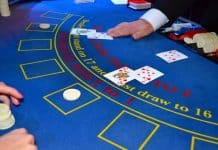Fundamentals of Game Theory

At its core, game theory studies games of strategy, which differ from games of pure chance. A strategic game involves multiple players, defined sets of possible moves, and outcomes that depend on the combined actions of all participants. Game theory attempts to identify the best possible strategies players can use to maximize their expected gains or minimize losses.
Some key components of game theory include:
- Players: The decision-makers in the game.
- Strategies: The set of all actions available to each player.
- Payoffs: The outcome or reward received from a particular combination of strategies.
- Equilibrium: A stable state in which no player can benefit by unilaterally changing their strategy.
In gambling, game theory applies most effectively in scenarios where the player is not merely playing against chance, but also against other rational opponents or systems designed with strategic elements.
Application in Competitive Gambling Games
Game theory finds its most direct application in competitive gambling games—those where players compete against each other rather than solely against a house or random outcome. A classic example is poker, a game that requires not only probability calculations but also anticipating opponents’ moves, deception (bluffing), and adaptability.
In poker, every hand can be considered a game-theoretical situation where each player tries to maximize their payoff, or winning the pot, based on incomplete information (hidden cards). Game theory helps identify optimal bluffing frequencies, betting strategies, and counter-strategies.
Another example is sports betting exchanges, where bettors can act as both bookmakers and punters. Here, strategic pricing, odds-setting, and predicting the market’s movements involve principles of game theory, especially in determining how to price risk in a competitive environment.
Zero-Sum Games and the House Advantage
In game theory, a zero-sum game is one where one player’s gain is exactly equal to another’s loss. Many gambling games—especially those played against the casino—fall into this category.
Game theory models these situations to analyze optimal player behavior, but unlike competitive games like poker, these games often come with a fixed house edge. This house edge makes long-term profitability mathematically impossible for players using only basic strategies, regardless of game-theoretic analysis. However, understanding game theory can still help identify minimally losing strategies.
Mixed Strategies and Randomization
A critical aspect of game theory is the use of mixed strategies, in which players randomize their actions to avoid predictability. It is particularly relevant in gambling games involving multiple decision points or repeated interactions. In strategic settings like poker, always acting the same way in a given situation can make a player vulnerable to exploitation. By occasionally bluffing or mixing bet sizes, a player becomes less predictable and more difficult to counter.
Mixed strategies are also used in game-theoretic simulations to determine long-term optimal behavior. In some gambling environments, particularly those involving AI or automated opponents (such as online poker bots), adherence to game-theoretic strategies helps machines outperform human intuition by remaining unexploitable.
Limitations of Game Theory in Gambling
While game theory is a powerful analytical tool, it has limitations in the gambling world. First, not all gambling games are strategic. Games like roulette, slots, or lotteries involve purely random outcomes where game theory has little practical application beyond understanding payout structures.

Game theory assumes rational behavior, but human players often deviate from rational decision-making due to emotions, cognitive biases, or misinformation. This unpredictability makes real-world applications of game theory complex and sometimes impractical unless players can reliably model and predict opponents’ irrational tendencies.
Conclusion
Game theory offers a structured and mathematical approach to understanding strategic interactions in gambling. While its relevance is most prominent in games involving competition between players, such as poker or sports betting, it also provides valuable insights into risk management, optimal play, and decision-making. By analyzing games through the lens of game theory, gamblers can gain a deeper appreciation of strategy, probability, and behavior. However, its practical value ultimately depends on the nature of the game and the rationality of its participants.










